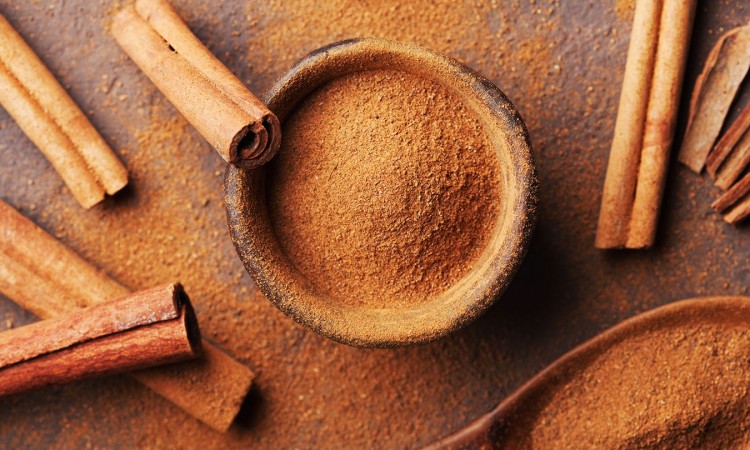CINNAMON'S NUMEROUS HEALTH ADVANTAGES

1. Antioxidants
- Cinnamon has a lot of antioxidants, like polyphenols, which shield the body's tissues from oxidative stress and its associated diseases like cancer, coronary heart disease, and inflammation.
2. Cardiovascular Disease Prevention
- Those with metabolic diseases who consume cinnamon have lower blood pressure, triglyceride, cholesterol, and blood sugar levels.
3.Increased Sensitivity to Insulin
- Cinnamon may be able to lessen insulin resistance and boost insulin sensitivity, which can help with blood sugar regulation.
4. Low Neurodegenerative Risk
- Certain components in cinnamon have an impact on tau, a brain protein linked to Alzheimer's disease.
- For Parkinson's disease-affected mice, cinnamon improved motor function while acting as a neuroprotectant.
5. Anti-inflammatory
- Cinnamon is a natural anti-inflammatory that prevents the release of arachidonic acid, a fatty acid that causes inflammation. Additionally, this arachidonic acid has been linked to blood coagulation.
- Despite the fact that all cinnamon may appear to be the same, there are two distinct varieties: ceylon and cassia. Both have the beneficial properties listed above, but only Cassia cinnamon has the toxin coumarin, which is present in various plant species and which can be dangerous if ingested in large numbers.
- Ceylon, commonly referred to as "genuine cinnamon," originates in Sri Lanka and southern India. Contrarily, cassia, which has its origins in southern China, is now widely cultivated throughout southern and eastern Asia. It has a darker brown-red hue.

